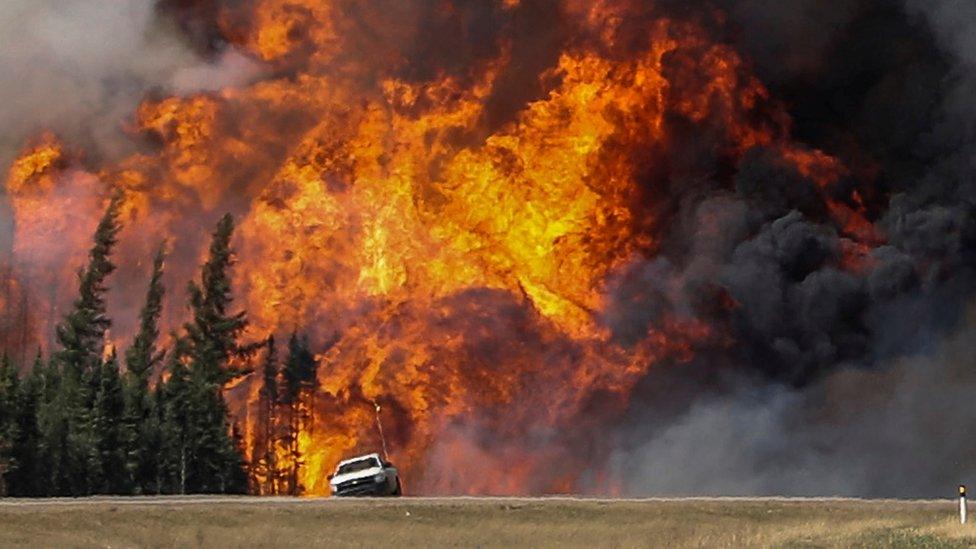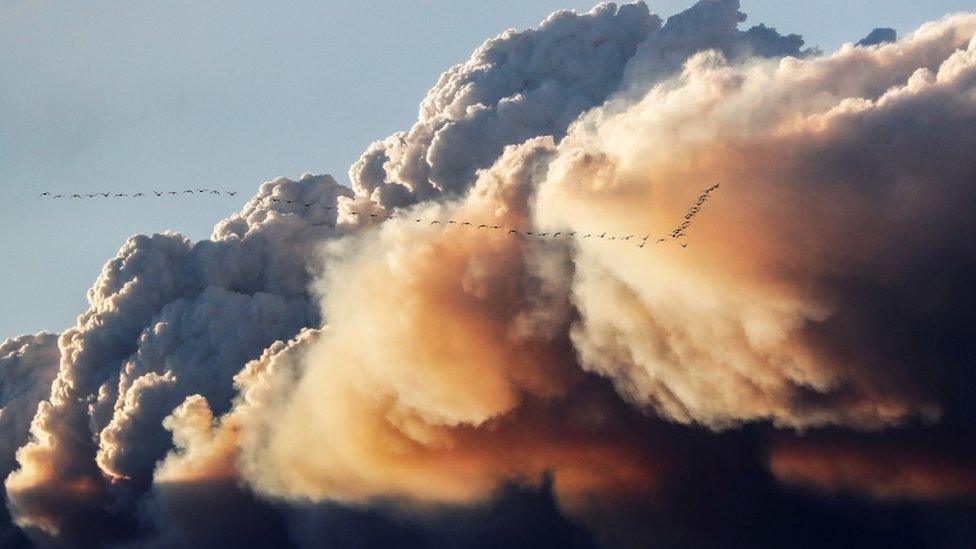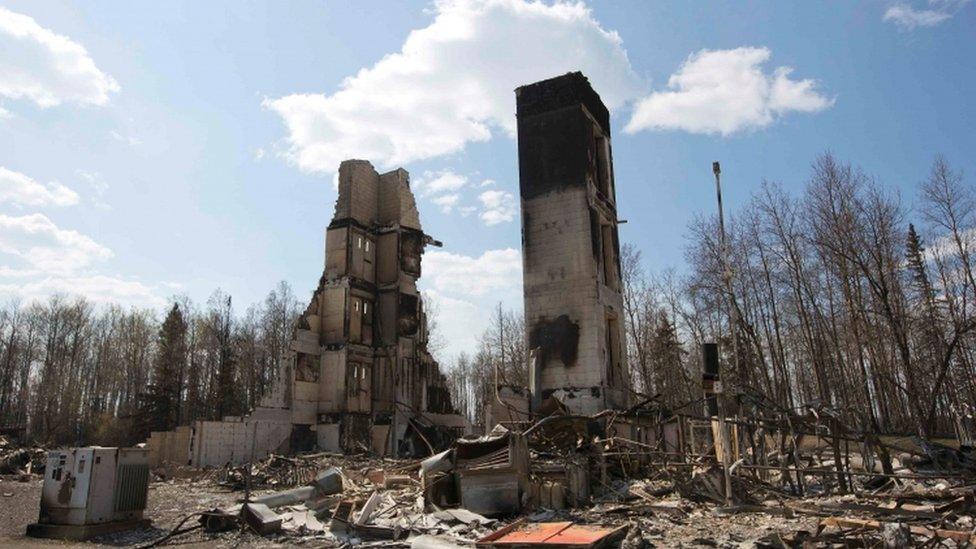Canada wildfire: Oil workers urged to leave Fort McMurray camps
- Published
More than 80,000 people have fled Fort McMurray following the wildfires
Around 12,000 people have been urged to leave Canada's oil sands camps near the fire-hit town of Fort McMurray as a resurgent wildfire heads towards them.
A regional official told the BBC that 8,000 people were given precautionary evacuation orders late on Monday, in addition to some 4,000 who had already been advised to leave.
More than 80,000 people fled the fire that hit Fort McMurray two weeks ago.
Air pollution in the Alberta city is still at dangerously high levels.
A reading on Monday found the level to be 38 - far exceeding the provincial index's most dangerous level of 10.
The vast fire had moved away from Fort McMurray but in recent days it has started to threaten the area again.
A number of oil workers had begun in recent days to return to the oil facilities north and south of Fort McMurray to restart production.
But on Monday, they were warned that the wildfire was travelling at 30-40 metres per minute north of Fort McMurray.

The uncontrolled blaze has moved back towards Fort McMurray

Thousands have been evacuated from the area

The wildfire has devastated large parts of Fort McMurray
Over the course of the day, the Regional Municipality of Wood Buffalo extended its precautionary evacuation orders, external to all camps north of Fort McMurray and south of Fort McKay.
These include the large Suncor and Syncrude sites.
Suncor confirmed, in a statement, it had "started a staged and orderly shutdown of our base plant operations" and its staff were being transported to camps further north.
"Suncor has enhanced fire mitigation and protection around all of its facilities," it said. "When it is safe to do so, we will continue implementing our restart plans."

Thick smoke and ash over a wide area are said to be hampering the fire-fighting operation and hot-dry winds have been fanning the flames.
Fire crews were also trying to control a blaze south-east of Fort McMurray that is threatening an oil installation, and another fire is burning not far from the Fort McMurray neighbourhood of Timberlea.

Canada's oil sands industry
Oil sands are a mixture of sand, water, clay and a thick, heavy oil called bitumen
Bitumen is extracted using surface mining and drilling, and must be treated before it can be turned into petrol and other usable fuels
Canada has the third largest oil reserves in the world after Venezuela and Saudi Arabia
The Alberta oil sands produced about 2.3 million barrels a day in 2014

Meanwhile, work is under way to restore essential services to Fort McMurray, paving the way for the return of the 80,000 residents.
Alberta Premier Rachel Notley said on Monday that electricity had been restored to most of the city, the water-treatment plant was working and the airport was ready to reopen.
But she has warned against anyone trying to return until air quality readings drop significantly. "This is something that could potentially delay recovery work and a return to the community," she added.
In some areas of Fort McMurray, houses have been reduced to nothing but ash.
Canadian Finance Minister Bill Morneau told CBC News that the cost of the disaster was still being evaluated.
"We're obviously going to stand shoulder to shoulder with the people in Fort McMurray and rebuild the city," he said.
The wildfire still covers about 2,410 sq km (930 sq miles) and is expected to burn for a few more weeks.